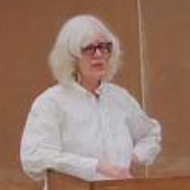
Audio By Carbonatix
[
{
"name": "GPT - Leaderboard - Inline - Content",
"component": "35519556",
"insertPoint": "5th",
"startingPoint": "3",
"requiredCountToDisplay": "3",
"maxInsertions": 100,
"adList": [
{
"adPreset": "LeaderboardInline"
}
]
}
]
Think back to the sweaty-palmed morning of the Big Test, one of those fill-in-the-circle-with-a-No. 2 pencil nightmares. It could have been the college application SAT, or the MEAP (Michigan Educational Assessment Program) in grade school. As much as we agonized over them, it turns out that in the real world there’s no need for "test-taking skills."
But today’s students are subjected to extreme pressure to do well on standardized tests. It’s called the "standards movement," and educators and politicians are pushing such tests in the name of "increased accountability."
In 17 states, high school seniors perform well on a multiple-choice test or they don’t graduate. In Michigan, real estate agents advertise MEAP scores from neighborhood schools to prospective home-buyers. Low MEAP scores were one reason Gov. John Engler cited for taking over the Detroit Public Schools last year, and acting Detroit Public Schools CEO David Adamany has threatened to close certain schools based on their MEAP numbers.
Across the country, a growing parent-and-teacher movement is campaigning against these high-stakes tests, demanding a more rounded assessment of students’ capabilities.
Dr. Monty Neill of FairTest, a national organization of parents and educators, says, "We do not believe that standardized tests, even with some open-ended questions, are good assessments of what students know and can do. They do not lead to high-quality curriculum and instruction, and there’s no evidence that they improve student learning."
Alfie Kohn, author of The Schools Our Children Deserve, notes that his state, Massachusetts, is spending $20 million on a program to raise scores on a state-mandated test. Such programs "might make sense," he writes, "if that process helped students become better thinkers. In fact ... every hour our children spend being drilled on test-taking skills or memorizing a mass of forgettable facts ... is an hour they are not spending making sense of ideas."
The anti-test movement is making waves. Last October, PBS’s "Frontline" ran a show asking tough questions about what the SAT really measures. Author Nicholas Lemann published The Big Test– a critical history of the SAT – last fall, to much criticism.
Lemann says, "The level of obsession over these tests is way out of proportion to what they actually measure. (The SAT) is not built to measure your innate worth or anything like that. It’s built to predict 15 percent of the variance in freshman year grades in college."
Even the makers and sellers of the SAT admit that two students’ scores must differ by at least 125 points before they can reliably be said to be different.
But administrators and politicians are anxious for numbers. Dr. Rich Gibson, in Wayne State University’s College of Education, has campaigned against Michigan’s MEAP, given in fourth, fifth, seventh, eighth and 11th grades. He’s found that 30 percent to 40 percent of teachers’ time is spent teaching toward the MEAP, under pressure from governments and administrators.
In 1997, teachers and parents in Detroit’s northern suburbs revolted against the MEAP High School Test, and in Birmingham last spring, only about 75 of 530 juniors took it.
According to Birmingham Public Schools Assessment Coordinator Sandy Schwartz, "People were bailing out because it wasn’t making sense to them."
Schwartz tells of one star student, who failed an area of the MEAP test that had always been his strongest subject, and is now at MIT. Another student, according to Gibson, failed the language and literacy section of the MEAP – and received a journalism scholarship.
No college requires MEAP scores; the reason the state gives the tests, according to Maureen McNulty Saxon of the Michigan Merit Award program, is to assess how well schools are teaching core subject areas.
Despite criticism, the number of students taking the MEAP this year has shot up. The reason? Michigan is offering $2,500 scholarships to anyone who scores in the top two levels (out of four). One Detroit principal refers to the scholarships as "a bribe."
Diane Smolen, of the state Treasury Department, which administers the Merit Awards, says carefully, "The primary purpose is to reward student achievement and make postsecondary education more affordable. However, it also is viewed as a means to increase emphasis on the MEAP test."
Neill calls the scholarship "a net transfer of wealth from the poor to the upper middle class."
That’s because the scholarship money comes from the settlement of Michigan’s lawsuit against tobacco companies; smokers are disproportionately poor people; and the scholarships will go mostly to upper-income families.
Lemann explains, "One of the most consistent findings in all of standardized testing is that the better-educated and prosperous parents produce children who score better on standardized tests. The SAT tends to reproduce the class system from generation to generation."
Average SAT scores for college-bound seniors increase consistently with family income, an average of 29 points for each $10,000. The leap is largest – 48 points out of 1,600 – between those making $80,000-$100,000 a year and those making more than $100,000 a year.
Says Gibson: "What MEAP measures is first, class, next, race, and third whether the teacher did nothing but teach to the exam."
McNulty Saxon counters, "We don’t buy that the Merit Awards are unfair because students from wealthier districts may win more. If you think that, you may as well throw in the towel."
Another reason many rich kids make higher scores is that they take expensive test preparation courses. Hundreds of thousands of students take test prep every year, generating more than $100 million for the companies coaching them. Princeton Review, which gives classes in Grosse Pointe and Birmingham, guarantees to lift SAT scores by 100 points and ACT scores by 4 (out of a possible 36). The cost: $749 for 35 hours of instruction.
Kitty Regjo of Princeton Review’s Ann Arbor office notes that it’s the students who can’t afford coaching who "need" it most. It makes little sense to compare a student who takes the test cold with another who’s spent hours with a coach.
Colleges like standardized exams, Regjo notes, because they make it easy for admissions officers, but she also calls the tests "extremely biased." Her office offers hints: Guessing helps on the ACT, but not on the SAT.
But beating the test is not the same as learning. Judy Depew, a social studies teacher at Dakota High School in Macomb Township, says Michigan teachers must devote so much time to the MEAP, "there is little time left for teachers to devote to actively engaging students’ minds through in-depth study of issues, hands-on experiences, debates, simulations, and inquiry."
As a result, "students ... are being trained not to be creative, critical thinkers, but cooperative, unthinking employees and citizens."
Rich Gibson sees two right choices for Michigan teachers who don’t want to see their students MEAPed: One is to encourage kids to boycott the tests. "Or teachers can do what they need to do during the course of the school year, and then in the last two weeks before the test, teach test-taking techniques."
Alfie Kohn encourages parents to challenge school boards’ and legislators’ devotion to tests.
For those who feel they "have to play the game," in Regjo’s words, Princeton Review offers free tests and strategy sessions monthly. Call 800-2REVIEW.






